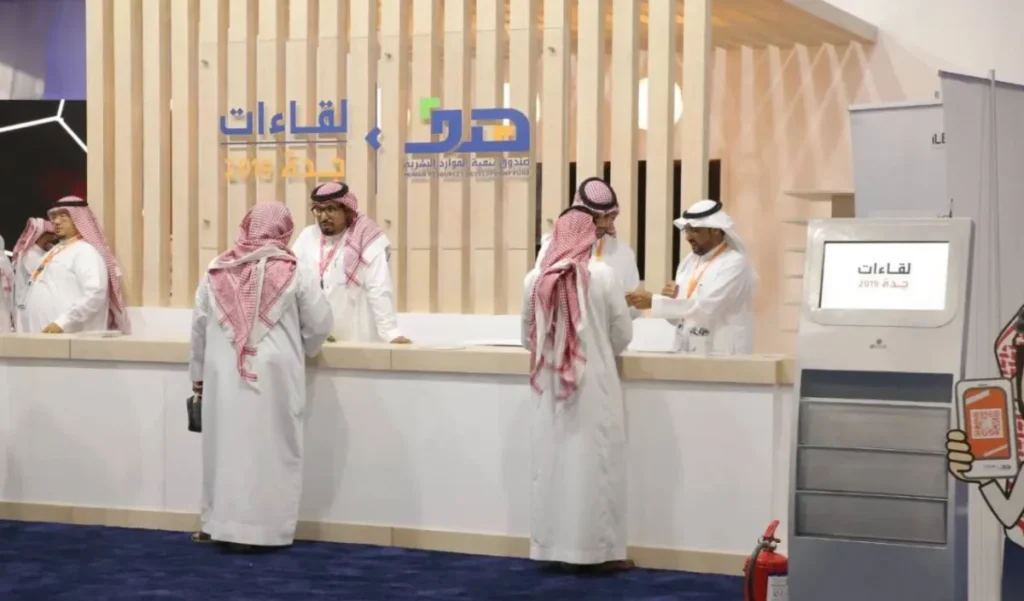Saudi Arabia’s drive to nationalize its labor force gathered pace in the first quarter of 2025, with more than 143,000 Saudis landing jobs thanks to government-backed employment programs, a 93% jump compared to the same period last year.
The figures, announced by the Human Resources Development Fund (Hadaf), underline the growing impact of empowerment initiatives under the Kingdom’s Vision 2030 reform plan. They also reflect a stronger alignment between public and private sector efforts to boost workforce participation.
The surge in employment was fuelled by a wide array of support programs offered by the fund, including training, career counselling, and empowerment services, which benefited more than 1.18 million individuals in Q1 alone, marking a 4% year-on-year increase.
The number of companies that tapped into these programs also rose to over 98,000, up 37% from the previous year. Nearly 94% of those were small, medium, or micro enterprises, indicating a broad base of impact across different regions and sectors of the Kingdom.
Ali Al Eid, a human resources expert, told Asharq Al-Awsat that Hadaf’s continued role in shaping the job market has strengthened its partnerships across industries and accelerated the empowerment of local talent.
“The high growth rate in employment support reflects a tangible shift in national empowerment strategies,” Al Eid said, adding that the programs are increasingly tailored to meet both immediate labor market needs and long-term ambitions.
He noted that targeting small and medium-sized enterprises (SMEs) was particularly significant, as they form the backbone of the local economy and often represent the segment most in need of support.
“The Saudi labor market is evolving rapidly, focusing on investing in local talent, promoting entrepreneurship, and expanding employment in promising sectors,” Al Eid said.
“Investing in human capital is the smartest route to economic sustainability, and we’re now seeing the results of Vision 2030 in action.”
Badr Al-Enzi, another HR consultant, highlighted the pivotal role played by Hadaf since the launch of Vision 2030, particularly in empowering young Saudis for private sector roles.
He said Hadaf initiatives have enhanced job security and upskilled Saudis in technical and specialist fields, especially in fast-growing industries such as automotive manufacturing, logistics, digital technology, and app development.
“These programs were crucial in supporting Saudization policies rolled out by the Ministry of Human Resources,” Al-Enzi said. “They also played a central role in boosting women’s participation in the workforce, which has more than doubled from 17% in 2017 to 36% by the end of 2024.”
Last year alone, around 437,000 Saudi nationals joined the private sector, bringing the total number of Saudis employed in the sector to nearly 2.4 million by the end of 2024.
Al-Enzi added that 43.8% of Saudi working women now hold mid-to-senior managerial roles, signalling major strides in female empowerment and progress toward Vision 2030’s targets.
Hadaf disbursed 1.83 billion riyals ($488 million) in support programs during Q1 2025, a figure that reflects the scale of the Kingdom’s investment in building a qualified capable workforce to steer its economic and social transformation.



